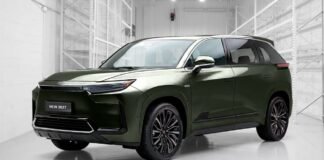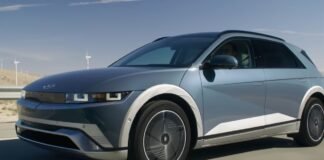The Honda Accord has a storied reputation, not just as a reliable and versatile car but also as a vehicle that once offered a spirited V6 option. At its peak, nearly every Accord trim came with a V6 option. Buyers didn’t need to splurge on the fully loaded model; even the LX or EX trims could be equipped with the more powerful V6 for a few thousand dollars more. This accessibility explains why so many older Accords on the road still proudly display the V6 badge.
Why the V6 Sedan Was Special?

The V6 engine was a defining feature that made sedans more exciting to own. It bridged the gap between practicality and performance, attracting families and enthusiasts alike.
During its prime, the Accord offered a large, comfortable economy sedan equipped with a 280-horsepower engine. Buyers could even opt for a stick shift or a two-door coupe. The Accord’s versatility and reasonable pricing cemented its appeal in the market.
The End of the V6 Era

In 2018, Honda discontinued the V6 option with the introduction of the 10th-generation Accord. However, the loss was mitigated by the introduction of a 2.0L turbocharged engine—a detuned version of the Civic Type R engine—which was also available with a manual transmission.
While it lacked the raw power of the V6, the 2.0L turbo offered similar torque figures at lower RPMs, maintaining much of the driving excitement. Unfortunately, this also marked the end of the two-door coupe.
The Decline of Performance Options

The situation worsened in 2020 when Honda ceased offering a manual transmission for the Accord, and by 2022, the 2.0L turbo was also discontinued.
According to Honda, the 2.0L turbo accounted for about 12% of Accord sales in its final year. This was a notable take rate given its higher price point and the presence of alternative models, such as the hybrid variant.
Why the 2.0L Turbo Mattered

The 2.0L turbocharged Accord was significant because it expanded Honda’s market reach. Customers cross-shopping premium sedans like the BMW 3 Series found the Accord an attractive alternative, offering power, better economics, and Honda’s renowned reliability.
While not a true driver’s car like the Civic Si, the 2.0L turbo Accord delivered a blend of practicality and performance that appealed to a broad audience.
The Current State of the Accord

Today, the 11th-generation Accord offers two powertrain options: a 1.5L turbo mated to a CVT and a two-motor hybrid system. The 1.5L turbo struggles to compete against rivals like the Toyota Camry, which comes standard with a hybrid powertrain.
Meanwhile, the hybrid system’s combination of a naturally aspirated 2.0L engine and two electric motors delivers an EV-like driving experience, making it a compelling option for those prioritizing efficiency.
The Impact of Fuel Economy Regulations
The decision to discontinue the 2.0L turbo was driven by increasingly stringent Corporate Average Fuel Economy (CAFE) regulations. These regulations require manufacturers to meet ambitious fuel economy targets, with the 2025 Accord needing an effective 50 MPG on the CAFE test cycle. While Honda has historically excelled at meeting these targets, the 2.0L turbo’s 26 MPG combined rating made compliance challenging.
Challenges for Small Cars and Performance Sedans

CAFE regulations disproportionately affect smaller cars, prompting automakers to abandon segments like subcompact sedans.
For example, Honda discontinued the Fit, and Toyota dropped the V6 from the Camry lineup, transitioning it exclusively to a hybrid model. Toyota’s reliance on hybrids stems from its large truck and SUV sales, which lower its overall fuel economy average.
The Future of Honda’s Lineup
For Honda enthusiasts, the discontinuation of powerful options like the 2.0L turbo leaves a void. Both Honda and Acura lack a practical, comfortable sedan with robust performance.
The Acura TLX, despite its sporty design, falls short on interior space and competes more directly with the Lexus IS rather than the Lexus ES.
Electric Vehicles and Market Adaptation
To offset CAFE challenges, Honda could benefit from a stronger electric vehicle (EV) strategy. Brands like Hyundai exemplify this approach, using high-MPG EVs like the Ioniq 6 to enable the sale of powerful internal combustion models like the Sonata. With a more aggressive push into electrification, Honda could reintroduce performance options without compromising regulatory compliance.
The Accord Hybrid: A Practical Daily Driver
The Accord Hybrid’s performance might surprise some. Its torque, comparable to the V6, is instantly available, making city driving enjoyable.
While it lacks high-speed power, the hybrid delivers a quieter, smoother ride with nearly double the fuel economy. For many, this trade-off makes sense, although convincing longtime V6 or 2.0L turbo owners to switch remains a challenge.
What Could the Future Hold?
An all-wheel-drive hybrid Accord with a 0-60 time of around 5 seconds and 40 MPG fuel economy could reinvigorate the lineup.
Honda has a history of performance hybrids, as seen with the Acura RLX. Competing models like the Toyota RAV4 Plug-in Hybrid demonstrate that powerful hybrids are viable. If Honda embraces such innovations, the Accord could maintain its legacy in a rapidly evolving market.


